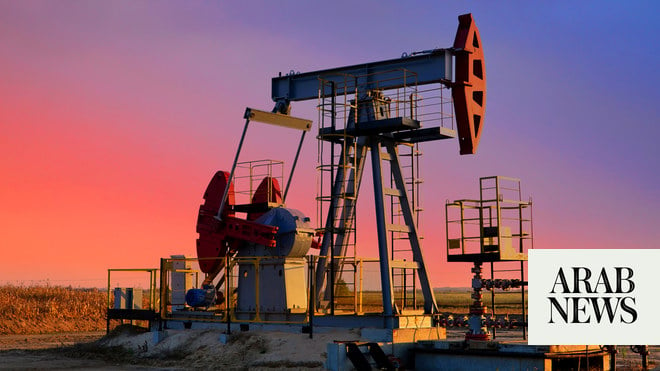
RIYADH: Saudi Arabia, which reported last month a surplus in its first quarterly budget surplus since the first quarter of 2019, is applying restraints on spending even as oil prices are trading near multiyear high.
The Saudi Ministry of Finance has started to apply the spending cap regardless of the oil price and revenues, Minister Mohammed Al-Jadaan said at the Financial Stability Conference on Thursday.
The government is working through the financial sustainability program to reduce exposure to external factors, including fluctuations in the oil markets, by adopting financial rules that achieve financial sustainability and sustainable development, which reflects on financial stability, Al-Jadaan said.
These rules adopt new methodologies to determine spending ceilings in the medium term, he said.
The financial rules are based on the estimation of the structural oil revenues that do not only depend on the future expectations, but also on the average real historical revenues for a long period, and the estimation of non-oil revenues as a percentage of non-oil GDP to form together spending ceilings, the minister explained.
These rules will limit the fluctuation of spending and its multiple negative results, he said.
The rules also include minimum and maximum limits for government reserves, so that surpluses are dealt with to enhance government reserves and support development funds and the Public Investment Fund, or pay part of the public debt.
Saudi Arabia has faced no challenges in issuing debt even at the worst time of the COVID-19 pandemic, he said.
The credit rating was important not only for government and government debt, but also for cost reduction, the Saudi Minister said.
Credit rating agency Moody’s has changed early this month the outlook on the Saudi government from negative to stable. The agency predicted the Saudi economy will return to positive growth in 2021, and the current account level will return to a surplus as the fiscal deficit shrinks in 2021, accompanied by a reduction in the level of debt in the medium term.
The Kingdom’s budget turned to a surplus of SR6.68 billion ($1.78 billion) in the third quarter of this year, up from a deficit of SR4.61 billion in the previous quarter, and a deficit of SR41 billion in the third quarter of 2020, the Saudi Ministry of Finance revealed in its latest quarterly report.
Oil revenues went up by 60 percent in the three months ending Sept. from a year ago reaching SR148 billion, according to the ministry’s report.
Social spending fell down by 41 percent over the same period, while subsidies fell down by almost half, the data showed.
PIF, Private Sector
Al Jadaan said that the purpose of having reserves and investments with the Public Investment Fund was to give fiscal stability to government spending.There is a negative impact on the sovereign credit rating affecting the private sector, so the government is keen to ensure that these effects are avoided, Al Jadaan added.
Talking about the KIngdom"s other goals, he said that Saudi Arabia"s direction is clear about being a global logistics hub including rail and port networks, the minister said.
Ports are growing significantly, previously wasted opportunities have been activated and a large number of ports have been allocated to different types of services, according to Al Jadaan.
“There are very big opportunities for the private sector,” he said.











